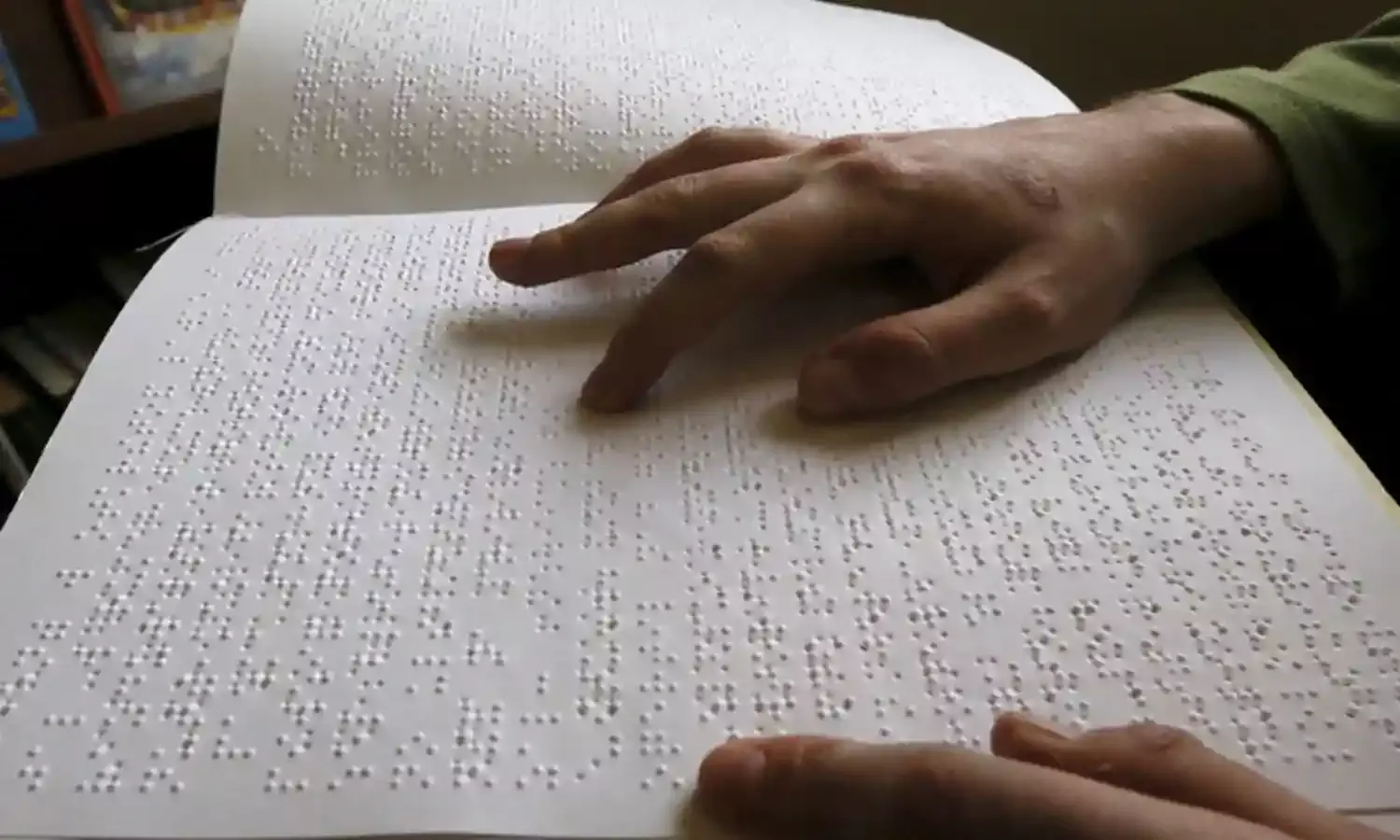Braille liberates blind persons from illiteracy
Abilu said that the uniqueness of the observance of Word Braille Day also lied in the fact that many people often wondered how possible it was for somebody to touch some dots and read normally as against print.;

Dr Abrasheed Abilu, Director, National Resource Centre for the Disabled (NRCD), Federal College of Education Special (Oyo), says that Braille liberates the visually impaired from illiteracy.
Abilu made the remark on Thursday while speaking to the newsmen on the observance of the 2023 World Braille Day.
Supreme reports that braille is a tactile writing system used by people who are visually impaired, including people who are blind, deaf or who have low vision.
He added that the invention, which is a system of reading and writing by touch or tactile for the blind, had liberated the people with visual impairment from lack of education and made them to be relevant.
According to the scholar, the celebration would engender creativity and resourcefulness in people with disability in general and those with visual impairment in particular, because the inventor, Louis Braille himself, was a blind man.
“No doubt the declaration of the day will also help in giving confidence to victims of sight loss and their parents that there is hope after all.
“The inventor modified the then existing form which was known as Night Reading, created by Charles Barbier, a Frenchman.
“There is no way a blind person would have been able to offer mathematics and science if not for the invention of Braille,’’ he said.
Abilu said that the uniqueness of the observance of Word Braille Day also lied in the fact that many people often wondered how possible it was for somebody to touch some dots and read normally as against print.
“Braille reading and writing has covered almost all the languages of the world including Arabic and Yoruba.
“Though, there might be other forms of getting educated for people with blindness, braille reading and writing remain the very best yet because literacy is all about reading and writing,” Abilu reiterated .
In his own contribution, Mr Opeolu Akinola, the Executive Director, Access Tech Innovation and Disability Awareness and Development Initiative, noted that Braille had since its invention in 1820s, undergone a lot of positive transformation and development.
He stated that some fields or human accomplishments, which were thought to be no go areas for persons with blindness, now have simple codes used in identifying or teaching them.
“For instance, there are Braille code used in games like scrabble, chez, draft, monopoly, including music, mathematics and science,” Akinola said.
The assistive technology consultant said among the advancement that braille reading and writing witnessed since technological innovation began, was the ability to easily convert print to Braille in electronic Braille device.
He said that most Braille equipment, ranging from machines to the papers, were very expensive due to the fact that they were not produced locally.
Akinola stated that one of the electronic devices known as Notetaker had gone a long way in simplifying the assignment of visually impaired lawyers and students because they would not have to carry bulky writing materials about.
“Nigerian students are at disadvantage of second grade Braille reading and writing system which is no longer in use abroad.
“What obtains abroad now is the Unified English Braille (UEB) which allows printed electronic materials to be processed directly.
“With the invention of speech synthesiser, which enables anyone with visual impairment to listen to printed materials on phone and in the computer, many blind students feel that they have no problem academically,’’ he said.
Akinola, however, said there was an extent to which such could take them because they might still have writing problem.
The computer scientist advised persons with visual impairment to ensure that they have a good understanding of Braille reading and writing in order to have knowledge of correct spelling of words.
Louis Braille lost his sight at the tender age of 10 in 1819 but went forth to create a sharp pointed object known as stylus and a slate with six cells to formulate alphabets A to Z which enabled him to continue his education.

